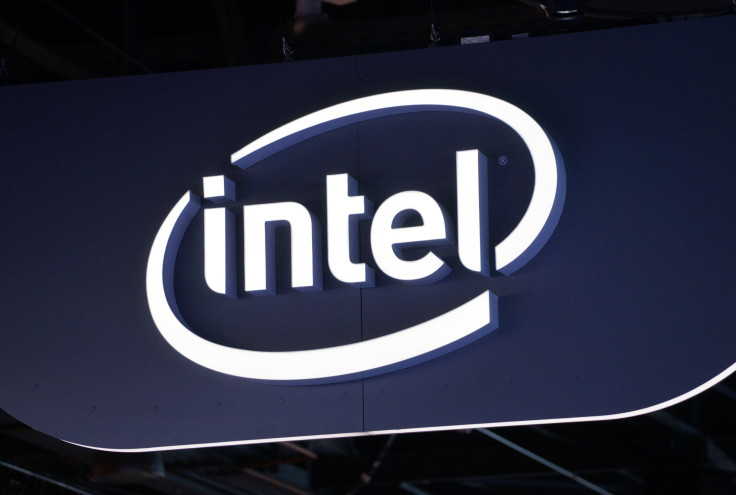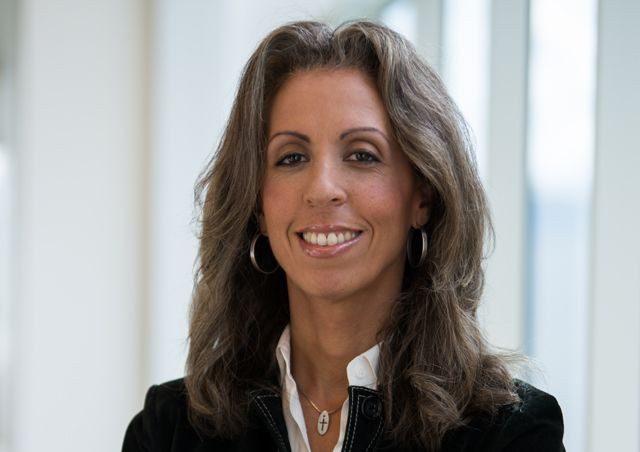Intel Capital's Lisa Lambert: Ignoring Diverse Entrepreneurs Is 'Just Bad Business'

SAN DIEGO -- Many tech companies have pledged their commitment to diversity, but few have taken as much action to back it up as Intel, which in June launched a $125 million diversity-focused fund as part of Intel Capital.
That fund, led by Lisa Lambert, Intel Capital's managing director and vice president, has just announced its fifth investment and is now planning to expand its diversity focus to women and minority entrepreneurs in international markets.
Since the start of the tech industry’s current diversity movement in 2014, when Google released the first diversity report, Intel has pledged more than $300 million toward diversity efforts and has committed itself to achieving full representation for women and minorities at all levels of the company by 2020. Intel has also taken visible action, such as starting its diversity fund, setting up a $5 million scholars program for high school students in Oakland, California, and offering employees double referral bonuses for any diverse candidates they help recruit.
“This isn’t just good business. This is the right thing to do,” CEO Brian Krzanich said following the announcement of Intel’s $300 million commitment in January.
International Business Times sat down with Lambert at Intel Capital’s Global Summit conference this week, where she spoke at length about the diversity fund’s progress, how entrepreneurs from varying backgrounds have reacted to Intel’s efforts, the state of tech diversity and why diversity matters.
IBT: What sparked the idea for Intel Capital’s diversity fund and how does Intel find entrepreneurs from underrepresented groups?
Lisa Lambert: When I first started evaluating the diversity fund, I just tapped my network. I have a nonprofit that I started back in 2013 called Upward -- it’s a lot of female executives, many of them are entrepreneurs -- so I went to them and just said, ‘What’s been your experience with fundraising?’ and they said, ‘These are the troubles we’ve been having.’ It wasn’t a lack of ideas, not a lack of will to start a company but a lack of funding, and that really informed my view and the whole idea of doing a diversity fund.
The perception on lack of diversity was that there were a lack of ideas and a lack of deal flow, meaning business proposals, from those groups. I quickly discovered that it wasn’t a lack of deal flow, and it wasn’t a lack of entrepreneurs that were trying to build companies. It was the perception that people in those communities don’t match the pattern that venture capitalists are used to investing in, and frankly, the venture capitalists just had very little access to those communities because they aren’t very diverse.
The basic premise we came up with was to have a team to represent those groups. Having women, having African-Americans -- and we’re working on hiring an Hispanic American -- that have access to those communities and are credible in those communities, so we get deal flow.
IBT: Are these communities where the next billion-dollar companies lie?
Lambert: My expectation is that there are many billion-dollar ideas in this community. Half the world’s population are women. Women are entrepreneurs in America and all over the world. Not so much in tech, but as I discovered when I started asking women in my network, they do have interest in getting in tech. Women are large users of social communities, social networks and social media. They are large users and consumers of mobile technology. Women skew heavy in tech.
IBT: And what's the situation with visible minorities?
Lambert: African-Americans and Hispanics often have less resources, so doing everything on their smartphones makes a whole lot of sense. It’s a lot cheaper than buying a computer. They are savvy, they have ideas and they want to reach their communities, and who better to reach those communities than those people? I think there’s going to be lots and lots entrepreneurs in those underrepresented groups, and frankly, that’s where venture capitalists make their money -- we make our money by investing in underserved markets. It’s the disruptive model, and these underrepresented groups -- women, Hispanics, African-Americans and Native Americans -- that we’re pursuing in the diversity fund represent a lot of that market opportunity. They’re just not being funded, and we think we can help cause a shift and help build the next generation of billion-dollar businesses.

IBT: What’s next for the diversity fund?
Lambert: The goal is to do what Intel Capital does, which is be a global investor. We’ve got investment teams on every continent, and since we have those resources available to us, we plan to go to those markets and invest in women and in some definition of “minorities,” which will vary depending on the country.
IBT: Do you also plan to expand the size of the fund?
Lambert: No, no intent to change the size, but our CEO, Brian Krzanich, has said that if there is quality deal flow we should invest. There’s an explicit statement around doing that, so if we find good, quality deal flow around the world exceeding the allocation of $125 million in a given year we could get some leniency there. The idea is to invest in high-quality companies.
IBT: It’s been five months since the fund launched. How’s it going so far, and who are the companies in your portfolio?
Lambert: We have five companies, and we’ve got two more in the process of finalizing funding right now. Our target is to do five to 10 deals a year.
The first is Brit + Co. They’re a maker movement, do-it-yourself company for tech and other types of goods for a female millennial demographic. The second is CareCloud, which is a healthcare IT company based in Miami with a focus on practice management and e-records for the healthcare industry, for physicians. The next company is Mark One, and their technology is a smart cup that has intelligent sensors that enable it to discern what’s in your cup and the molecular structure of the contents in your cup.
IBT: And who else?
Lambert: The next company is Venafi, which is a cybersecurity company that helps you manage your encryption keys so you can better secure your client and your network. And the last company, which we just announced, is called LISNR -- they’re a data-over-audio company.
IBT: Earlier you mentioned that you want your team members to have credibility in their communities. Why is that so important to you?
Lambert: When I say credibility, I’m saying they can go into those underrepresented communities and be viewed as someone who gets what’s happening there. It’s very difficult for a white male in an African-American community or a Hispanic community to go in and relate because it’s just not their experience. It’s not that they're not sensitive or caring, but you kind of have to come from those communities to understand their plight, the issues and the opportunities.
IBT: A lot has happened in tech diversity since the last time we spoke. What are your thoughts on how this movement is going so far?
Lambert: There’s certainly a lot more media attention, which I think is very good because as this gets exposure people start having conversations about diversity, and I don’t think you can effect change if you’re not at least talking about it and not aware of what’s happening. So I think the media attention has been outstanding.
We’ve also begun to see some movement in a positive direction both by the venture capital community and by the entrepreneurial community. In the first month after we launched, we had more than 350 applications and business plans that were sent to us. So once we announced that we were doing this, all those people who were scattered and not visible to the venture capitalists came out and said, "This is great. I’m so glad you’re doing this, and we’d love to talk to you about our business."
IBT: Any other signs of progress?
We’re beginning to see some venture capital firms, corporate and private, move in this direction and hire more diverse people here and there, announcing that they’re going to be pursuing this market. We’re moving the needle. It’s not giant steps -- it’s probably baby steps at this point -- but I do think we have a movement, and my goal is that at the end of our five years of this diversity fund that we are invested in a number of high-quality companies and that I've had a number of high-quality exits. I also hope that those entrepreneurs have gone on to start new companies and create a virtuous cycle where they perpetuate the model.
IBT: Often when reporters write about diversity, many people post comments saying they don’t get this focus on diversity. Can you explain why this matters?
Lambert: The world is diverse. If everybody looked alike and came from the same socio-economic backgrounds and spoke alike and had the same experience, then diversity wouldn’t be important, but the reality is that’s not the case. We are diverse, especially in America. We’re projected in America by 2043 to be a minority-majority country. Hispanics are growing faster than any other demographic in the U.S., and African-Americans are second after that.
Just on that basis, if the majority of your market, which is the American people, are going to be in those groups, you most definitely want to engage them on ideas. I think it’s exceptionally good business, and it’s good vision too. We don’t want those underrepresented groups who are going to be the majority in America to be left behind, to not be involved in the innovation ecosystem at all. That would be bad for our country, and it’s just bad business.
© Copyright IBTimes 2025. All rights reserved.






















